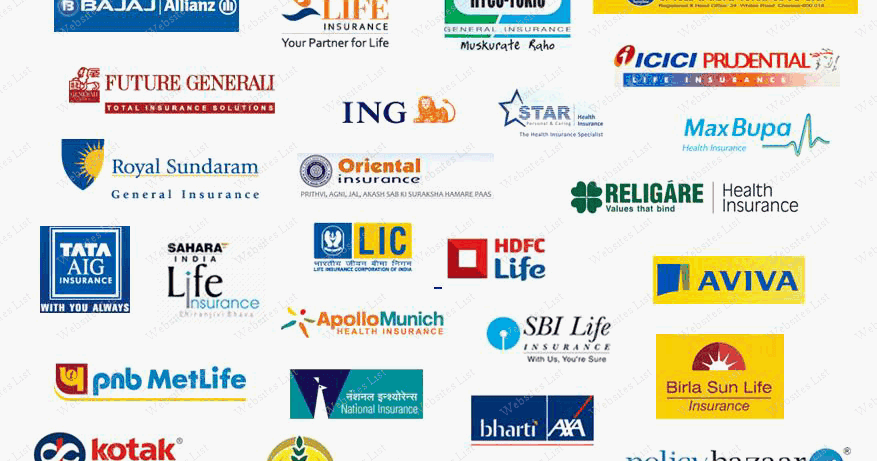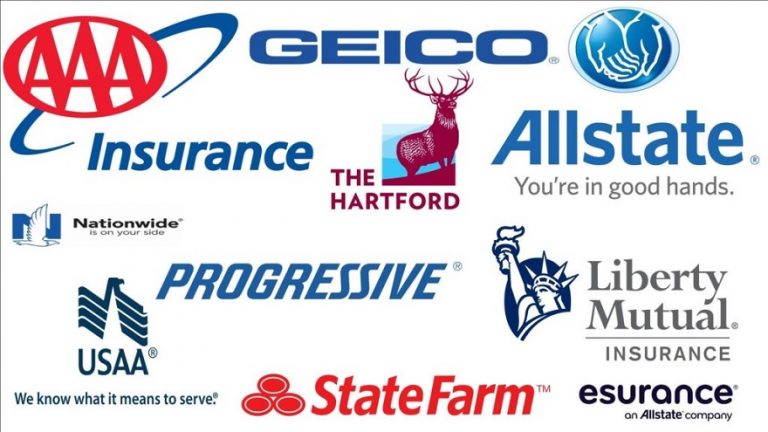Auto insurance companies near me are crucial for securing your financial well-being in the event of an accident. Finding the right company involves a careful consideration of various factors, including coverage options, pricing, and customer service.
Navigating the world of auto insurance can feel overwhelming, but with the right information and tools, you can make informed decisions that best suit your needs. This guide will explore key aspects of finding and choosing the ideal auto insurance company for you, from understanding different types of coverage to comparing quotes and navigating policy terms.
Understanding Auto Insurance Needs
Auto insurance is essential for protecting yourself financially in the event of an accident or other unforeseen circumstances involving your vehicle. It provides financial coverage for damages, injuries, and other related expenses. Understanding the different types of coverage and how they work is crucial to ensuring you have the right protection.
Types of Auto Insurance Coverage
The types of coverage you need will depend on your individual circumstances, such as your driving history, the type of vehicle you own, and your financial situation. However, most auto insurance policies include the following:
- Liability Coverage: This is the most basic type of auto insurance and is required by law in most states. It covers damages to other people’s property or injuries to other people if you are at fault in an accident. Liability coverage typically includes bodily injury liability and property damage liability.
- Collision Coverage: This coverage pays for repairs or replacement of your vehicle if it is damaged in an accident, regardless of who is at fault. It is usually optional but can be beneficial if you have a newer vehicle or a loan on your car.
- Comprehensive Coverage: This coverage protects your vehicle from damage caused by events other than accidents, such as theft, vandalism, fire, or natural disasters. It is also usually optional.
- Uninsured/Underinsured Motorist Coverage: This coverage protects you if you are injured in an accident caused by a driver who does not have insurance or does not have enough insurance to cover your damages.
- Personal Injury Protection (PIP): This coverage pays for medical expenses and lost wages if you are injured in an accident, regardless of who is at fault. It is often required in states that have no-fault insurance laws.
Factors Influencing Auto Insurance Premiums
Several factors can affect your auto insurance premiums, including:
- Driving History: Your driving record is a major factor in determining your premium. Drivers with a history of accidents, traffic violations, or DUIs will generally pay higher premiums.
- Vehicle Type: The type of vehicle you drive also affects your premium. Vehicles that are considered more expensive to repair or have a higher risk of theft will typically have higher premiums.
- Location: Your location can affect your premium because insurance companies consider factors such as the density of traffic, the crime rate, and the number of accidents in your area.
- Age and Gender: Younger drivers and male drivers generally pay higher premiums than older drivers and female drivers. This is because younger drivers have less experience and are statistically more likely to be involved in accidents.
- Credit Score: In some states, insurance companies use your credit score as a factor in determining your premium. This is because a good credit score can be an indicator of financial responsibility.
Situations Where Auto Insurance Coverage Would Be Beneficial
Here are some examples of situations where different types of auto insurance coverage would be beneficial:
- Liability Coverage: If you are involved in an accident that causes damage to another person’s vehicle or injuries to another person, liability coverage will help pay for the damages and medical expenses.
- Collision Coverage: If your vehicle is damaged in an accident, collision coverage will help pay for repairs or replacement, regardless of who is at fault.
- Comprehensive Coverage: If your vehicle is damaged by theft, vandalism, fire, or a natural disaster, comprehensive coverage will help pay for repairs or replacement.
- Uninsured/Underinsured Motorist Coverage: If you are injured in an accident caused by a driver who does not have insurance or does not have enough insurance to cover your damages, uninsured/underinsured motorist coverage will help pay for your medical expenses and lost wages.
- Personal Injury Protection (PIP): If you are injured in an accident, PIP will help pay for your medical expenses and lost wages, regardless of who is at fault.
Comparing Quotes and Coverage

Finding the right auto insurance policy involves more than just getting the cheapest quote. You need to compare quotes from different companies and understand the coverage they offer to ensure you’re getting the best value for your needs.
Obtaining Quotes from Different Companies
It’s essential to gather quotes from several insurance companies to compare prices and coverage options. This can be done online, over the phone, or in person. Online quote tools are generally the fastest and most convenient option, allowing you to input your information and receive multiple quotes instantly.
Comparing Quotes and Identifying the Best Options
Once you have several quotes, it’s time to compare them carefully. Look beyond the premium price and consider the following factors:
Factors to Consider When Comparing Auto Insurance Policies
- Coverage Limits: Compare the coverage limits for liability, collision, comprehensive, and uninsured/underinsured motorist coverage. Higher limits provide more financial protection in case of an accident.
- Deductibles: Higher deductibles generally lead to lower premiums, but you’ll have to pay more out of pocket if you need to file a claim. Choose a deductible you can comfortably afford.
- Discounts: Most insurance companies offer discounts for good driving records, safety features, multiple policy bundles, and other factors. Take advantage of all applicable discounts to lower your premium.
- Customer Service: Read online reviews and check the company’s customer service ratings. Look for companies with a history of responsive and helpful customer service.
- Financial Stability: Consider the financial stability of the insurance company. Look for companies with strong ratings from independent agencies like A.M. Best or Standard & Poor’s. This ensures they’ll be able to pay claims if needed.
Understanding Discounts and Benefits
Saving money on your auto insurance is possible with various discounts and benefits offered by insurance companies. These perks can significantly reduce your premium, making coverage more affordable.
Discounts
Discounts are a common way for insurance companies to reward good driving habits and responsible choices.
- Safe Driving Discounts: These discounts are awarded to drivers with clean driving records, demonstrating responsible driving behavior.
- Good Student Discounts: Students with good academic performance often receive discounts, reflecting their maturity and responsible nature.
- Multi-Car Discounts: Bundling multiple vehicles under one policy often leads to significant savings due to reduced administrative costs for the insurance company.
- Multi-Policy Discounts: Combining auto insurance with other policies, such as homeowners or renters insurance, can result in substantial discounts.
- Loyalty Discounts: Long-term customers may receive discounts as a reward for their continued business.
- Anti-theft Device Discounts: Vehicles equipped with anti-theft devices, such as alarms or tracking systems, are considered less risky, leading to lower premiums.
- Driver Training Discounts: Completing defensive driving courses can demonstrate your commitment to safe driving practices, potentially earning you a discount.
Benefits
Beyond discounts, auto insurance policies often include additional benefits that enhance your coverage and provide peace of mind.
- Roadside Assistance: This benefit covers emergency services such as towing, jump-starts, flat tire changes, and lockout assistance.
- Rental Car Coverage: If your vehicle is damaged or stolen, this benefit provides coverage for a rental car while yours is being repaired or replaced.
- Gap Coverage: This benefit helps cover the difference between the actual cash value of your vehicle and the amount you owe on your loan or lease if your car is totaled.
- Accident Forgiveness: Some insurance companies offer accident forgiveness, which prevents your premium from increasing after your first accident.
Choosing the Right Company
Finding the right auto insurance company is crucial to ensure you have adequate coverage at a reasonable price. With so many options available, making an informed decision can be challenging. This section will help you understand the key factors to consider when choosing an auto insurance company and provide a framework for making the best choice for your needs.
Factors to Consider
It’s important to weigh several factors when selecting an auto insurance company. Here are some key considerations:
- Price: Price is often the primary factor for many people. However, don’t solely focus on the lowest price. Consider the coverage you receive for the price and the company’s financial stability.
- Coverage: Ensure the company offers the coverage you need, such as liability, collision, comprehensive, and uninsured/underinsured motorist coverage. Compare coverage options and limits to find the best fit for your risk profile.
- Customer Service: Excellent customer service is essential, especially when you need to file a claim. Research companies’ customer service ratings and reviews to get an idea of their responsiveness and helpfulness.
- Reputation: Look for companies with a strong reputation for financial stability, claims handling, and customer satisfaction. Check their ratings from organizations like AM Best and J.D. Power.
Decision-Making Framework
To make an informed decision, follow these steps:
- Assess Your Needs: Determine your specific insurance needs based on your driving habits, vehicle value, and financial situation. Consider your risk tolerance and the potential consequences of an accident.
- Get Quotes: Contact several insurance companies and request quotes for similar coverage. Compare prices, coverage options, and discounts offered.
- Review Company Information: Research each company’s financial stability, customer service ratings, and reputation. Consider factors like claims handling speed, customer satisfaction, and complaint history.
- Choose the Best Fit: Evaluate the quotes and company information. Select the company that offers the best combination of price, coverage, and customer service for your needs.
Negotiating Premiums and Securing Favorable Terms
While you can’t always negotiate the base price, you can explore options to potentially reduce your premium:
- Ask About Discounts: Inquire about available discounts, such as safe driving discounts, multi-car discounts, and good student discounts. Some companies offer discounts for installing anti-theft devices or taking defensive driving courses.
- Consider Bundling: Bundle your auto insurance with other insurance policies, such as homeowners or renters insurance, to potentially receive a discount.
- Shop Around Regularly: Get quotes from different companies periodically to ensure you’re getting the best rate. Insurance premiums can fluctuate, so it’s important to compare prices regularly.
Maintaining Coverage and Making Claims

Having auto insurance is essential for protecting yourself financially in case of an accident. However, it’s equally important to understand how to maintain your coverage and make claims effectively. This section will guide you through the process of renewing your policy, understanding common claim scenarios, and ensuring a smooth claim experience.
Renewing Your Auto Insurance Policy, Auto insurance companies near me
Auto insurance policies typically have a term of six months or a year. When your policy is about to expire, your insurance company will send you a renewal notice. You can choose to renew your policy as is, make changes to your coverage, or switch to a different insurance provider.
- Review your policy: Before renewing, review your current coverage and ensure it still meets your needs. Consider factors like your driving habits, vehicle value, and any recent changes in your life that may affect your risk profile.
- Compare quotes: Shop around for quotes from different insurance companies to see if you can find a better deal. Online comparison websites can help you compare prices and coverage options quickly.
- Consider discounts: Ask your insurance company about available discounts, such as safe driving discounts, good student discounts, or multi-policy discounts. These can help lower your premium.
- Make necessary changes: If you need to make changes to your coverage, such as adding a new driver or vehicle, contact your insurance company to update your policy.
Making an Auto Insurance Claim
If you’re involved in an accident, it’s important to know how to file a claim with your insurance company.
- Report the accident: Contact your insurance company as soon as possible after the accident. Provide them with details of the incident, including the date, time, location, and the other parties involved.
- Gather information: Collect information from all parties involved, including names, addresses, phone numbers, driver’s license numbers, and insurance information.
- Take photos and videos: Document the scene of the accident by taking photos and videos of the damage to your vehicle, the other vehicles involved, and any injuries. This evidence will be helpful in supporting your claim.
- File a claim: Your insurance company will provide you with instructions on how to file a claim. This may involve filling out a claim form online or by phone.
- Cooperate with your insurance company: Be prepared to provide any requested information or documentation to support your claim. This may include police reports, medical records, and repair estimates.
Common Claim Scenarios
Here are some common scenarios where you might need to file an auto insurance claim:
- Collision with another vehicle: This is the most common type of accident, and your collision coverage will help pay for repairs or replacement of your vehicle.
- Hitting a stationary object: If you hit a tree, pole, or other stationary object, your collision coverage will likely apply.
- Comprehensive coverage claims: This type of coverage covers damage to your vehicle from events like theft, vandalism, hailstorms, or animal collisions.
- Uninsured/underinsured motorist coverage: If you’re involved in an accident with a driver who doesn’t have insurance or has insufficient coverage, your uninsured/underinsured motorist coverage will help protect you.
Tips for Smooth Claim Processing
Here are some tips for ensuring a smooth and efficient claim processing experience:
- Be honest and accurate: Provide truthful and complete information to your insurance company. Any inconsistencies or inaccuracies could delay your claim.
- Keep good records: Maintain detailed records of your claim, including all correspondence, documents, and dates.
- Be patient: The claim process can take time, so be patient and communicate regularly with your insurance company.
- Follow instructions: Carefully follow the instructions provided by your insurance company for filing and processing your claim.
Understanding Auto Insurance Trends: Auto Insurance Companies Near Me
The auto insurance industry is constantly evolving, driven by technological advancements and changing consumer behaviors. Understanding these trends is crucial for policyholders to make informed decisions about their coverage and for insurance companies to stay competitive.
The Rise of Telematics
Telematics is the use of technology to collect and analyze data related to vehicle usage. This data can include speed, location, braking patterns, and even driver behavior. Insurance companies are increasingly using telematics to assess risk and offer personalized pricing.
- Usage-Based Insurance (UBI): UBI programs use telematics data to adjust premiums based on driving habits. Drivers with good driving records and safe driving habits can earn discounts, while those with risky driving behaviors may see higher premiums.
- Improved Risk Assessment: Telematics data allows insurers to better understand individual driving patterns, leading to more accurate risk assessments and potentially lower premiums for safe drivers.
- Enhanced Safety Features: Some telematics devices offer safety features like emergency assistance, stolen vehicle tracking, and even driver coaching to improve driving skills.
The Impact of Autonomous Vehicles
The development of autonomous vehicles is another major trend shaping the auto insurance industry. Self-driving cars have the potential to significantly reduce accidents, which could lead to lower insurance premiums. However, there are also new challenges and complexities to consider.
- Liability Issues: Determining liability in accidents involving autonomous vehicles can be complex, as it may involve multiple parties, including the vehicle manufacturer, software developers, and the driver (if present).
- New Coverage Needs: Insurance policies may need to be revised to address specific risks associated with autonomous vehicles, such as cyberattacks, data breaches, and malfunctions.
- Changes in Insurance Models: The rise of autonomous vehicles could lead to new insurance models, such as pay-per-mile or usage-based insurance, that are more aligned with the actual usage of vehicles.
The Future of Auto Insurance
The auto insurance industry is likely to continue evolving in the coming years, driven by factors like telematics, autonomous vehicles, and changing consumer expectations.
- Increased Personalization: Insurance policies will likely become more personalized, tailored to individual driving habits, vehicle usage, and risk profiles.
- Focus on Prevention: Insurers may shift their focus from simply covering accidents to actively preventing them through telematics-based safety features and driver coaching.
- Data-Driven Insights: The use of big data and analytics will become increasingly important for insurers to understand risk, personalize policies, and develop new products.
Ending Remarks
Choosing the right auto insurance company is an essential step in protecting yourself and your loved ones. By understanding your needs, comparing options, and exploring customer reviews, you can find a company that provides reliable coverage at a competitive price. Remember, taking the time to research and make informed decisions can save you significant financial stress and ensure peace of mind on the road.
Finding the right auto insurance company can be a bit like finding the perfect houseplant. You want something reliable, affordable, and that complements your needs. If you’re looking for a plant that adds a pop of color, check out Exquisite House Plants Featuring Red and Green Leaves.
Similarly, a good auto insurance company will provide you with the coverage you need at a price that fits your budget. So, do your research and find the best fit for your needs, whether it’s a plant or an insurance policy.
